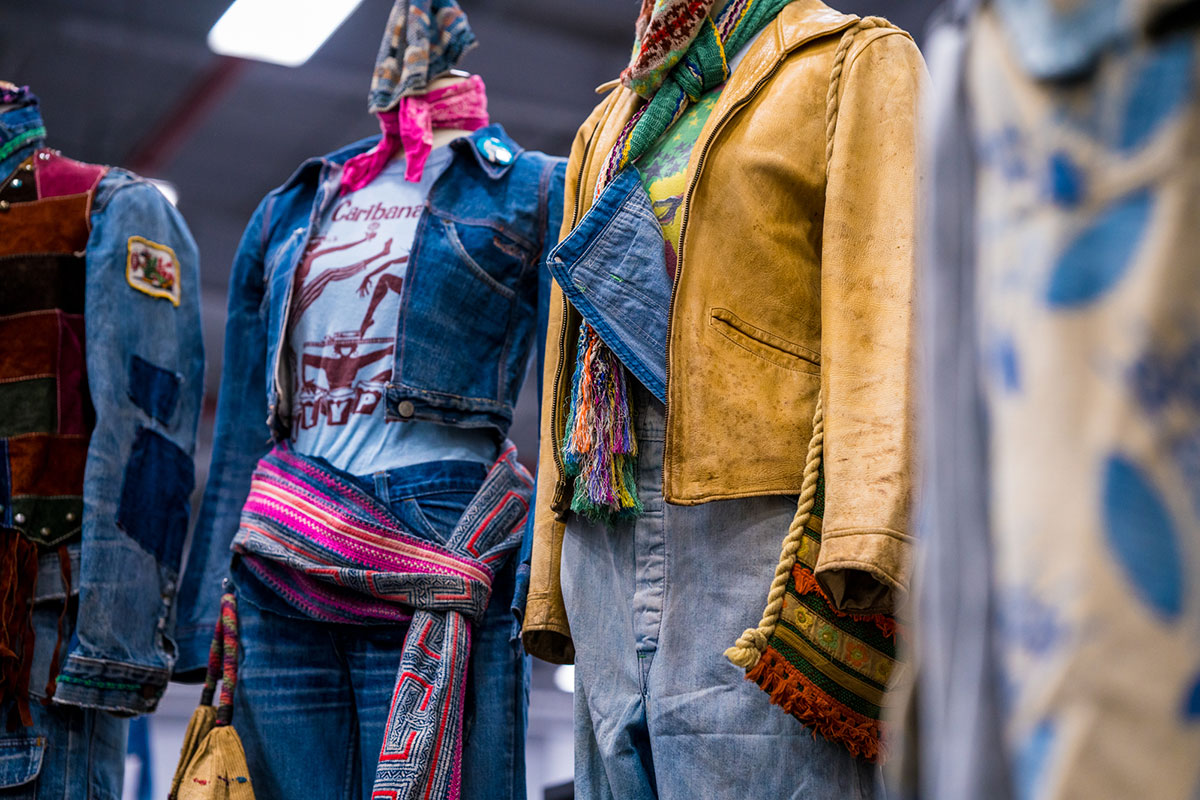Kingpins Interview : Chottani Industries goes Jeanetically Eco Conscious
Chottani has partnered with the WWF, Red Crescent Society and The Citizens Foundation ( TCF ) Schools, as well as some private organizations, to collaborate on many sustainable initiatives including climate change mitigation, organic cotton growing, natural habitat biodiversity, adopting and conservation of critically endangered species in Pakistan, improving livelihoods of fishermen communities and Plantation of Mangrove forests and conservation of surrounding eco systems. We talked with them to learn more about their ‘Jeanetically Eco Conscious’ program.
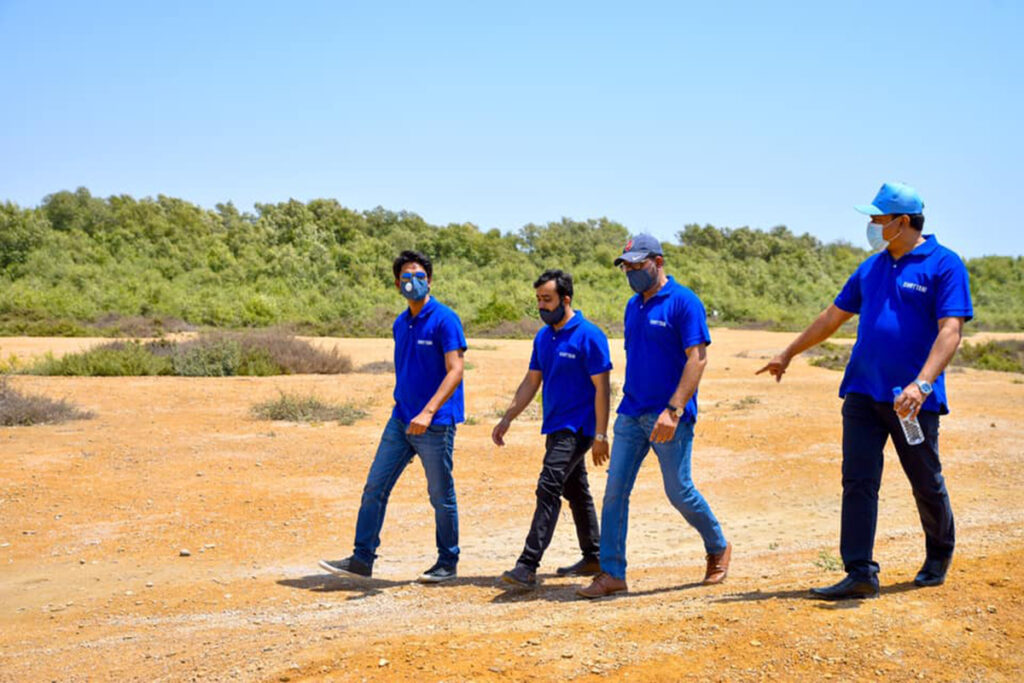
When did the program start and what is the impetus? Where did you come up with the idea?
The Good, the Bad and the Ugly Truth.
Much of the textile and fashion businesses in the world have been blamed for variety of evil including global warming. The sheer scale and continued growth of the global textile industry means efforts to cut consumption of water, energy and chemicals are more important than ever.
The United Nations has named 2020-30 as a “decade of urgent action” and the outbreak has left us thinking on how we, as people, have mistreated the planet. Global climate change poses a big threat to us now more than ever.
We have piloted ‘Jeanetically Eco Conscious’ in our Corporate Social Responsibility (CSR) and Sustainable practices in all our business practices. Our CSR and sustainable development philosophy means that we are genetically coded in our denim business practices to leave a positive, yet powerful change on our social, economic and environmental issue. We believe we are from nature and nature is from us.
We are an active member of United Nations Global Compact and 17 Sustainable development goals are at the very core heart of our Sustainable practices.
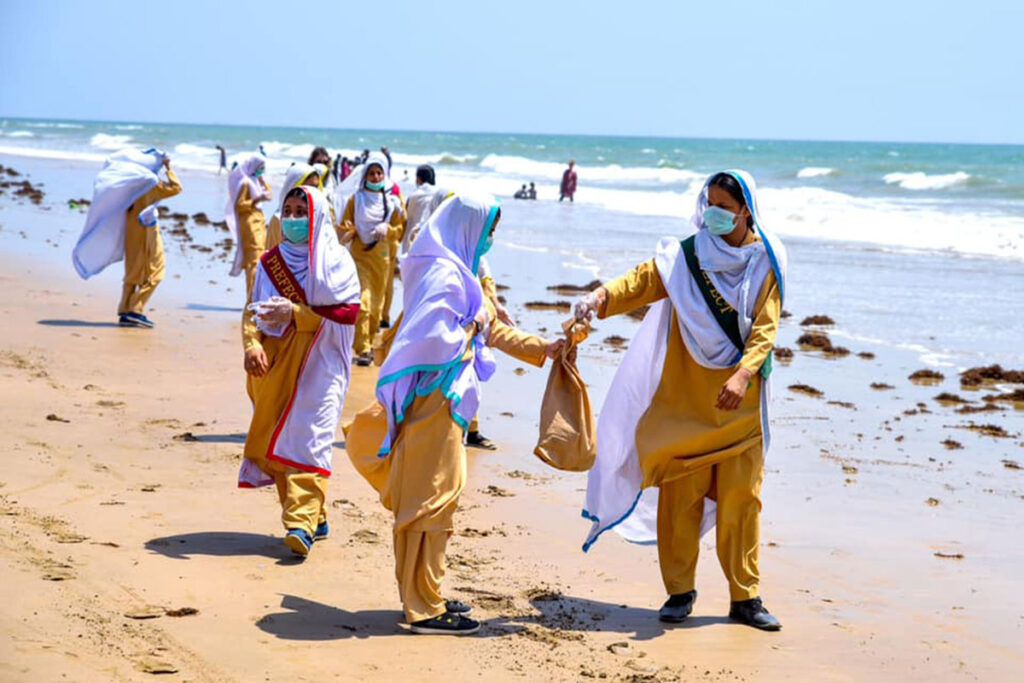
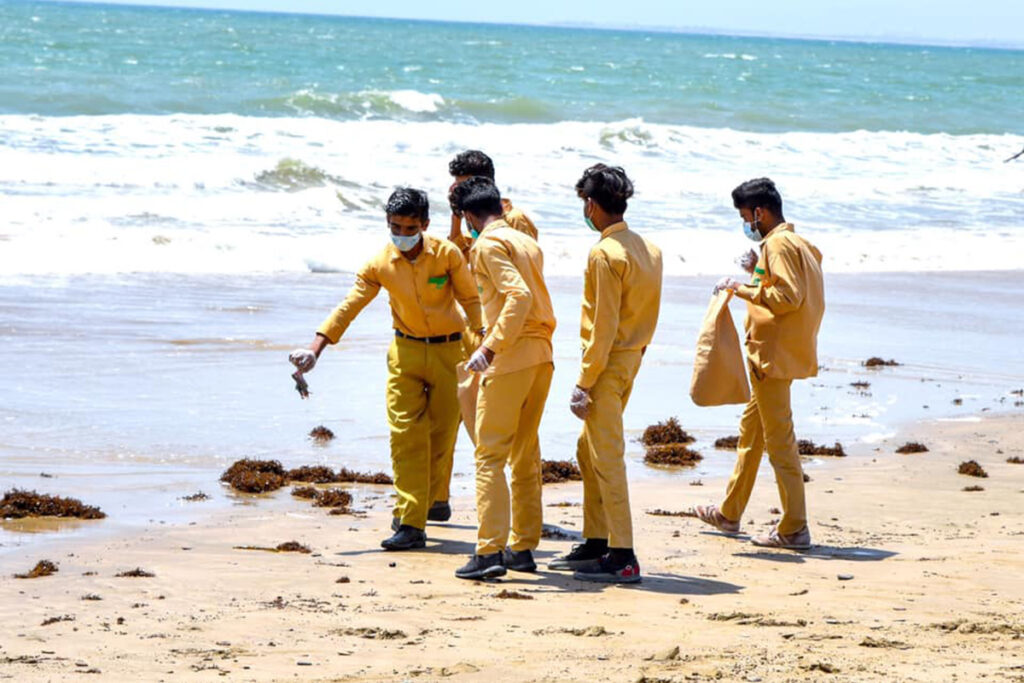
Are you collaborating with any NGOs and what beaches specifically are you cleaning?
We all have to play our part as a good Samaritan.
We have partnered with the WWF (World Wildlife Foundation), Red Crescent Society and the Citizens Foundation (TCF) Schools as well as some private organizations to collaborate on many sustainable initiatives including climate change mitigation, organic cotton growing, natural habitat biodiversity, adopting and conservation of critically endangered species in Pakistan, improving livelihoods of fishermen communities and plantation of Mangrove forests and conservation of surrounding eco systems.
Our plastic-free beach cleaning drive is focused along coastal lines of Hawksbay and Sandspit, which are the two most popular public beaches in Karachi, Pakistan.
Through our adopted schools at TCF, we are implementing community service as a part of their educational curriculum so that the children can bring awareness to communities and play their part as their favorite Marvel heroes in protecting our environment.

How do you measure the effectiveness of the program?
Progress of the program is measured against the established indicators and data set by the WWF and team of highly skilled experts including marine biologists, scientists, researchers and data collectors.
For example, Pakistan is the tenth largest coastline in world. Plantation of mangrove forests along the coastal lines of Sindh and Balochistan is extremely pivotal in preserving the eco systems, saving the oceans and has low carbon impact on environment. This falls under sustainability management of priority forest eco systems program.
Is there a long-term plan to grow the program?
We have set a conservation plan around sustainable practices and strategies that will help us in building a sustainable environment and developing sustainable communities in the next ten years (2021-31). This will be achieved with the help of our global collaboration partners.
For example, we intend to grow 300 percent of the mangrove forest along the coastal lines through our project by 2025. We also plan to work on innovative ways to put plastic wastes to use and not letting it end in landfills. One example is using plastics in road constructions, biodegradable plastics, eco -bricks and using plastic as a fuel.
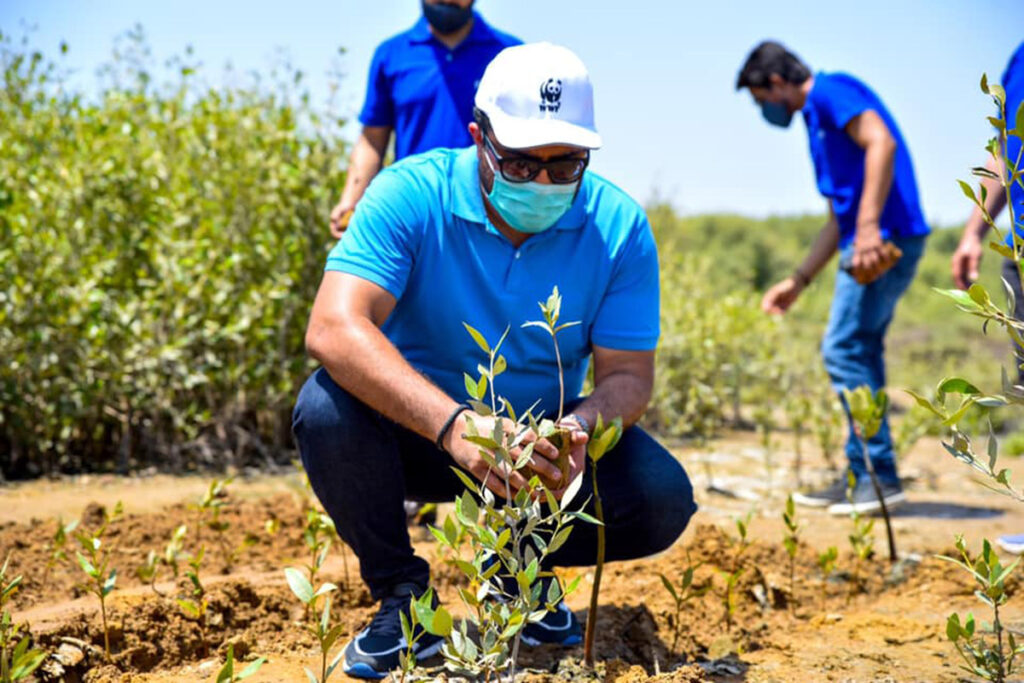
As a sustainable initiative, we will be growing organic cotton that sustains the health of the soil, conserves eco systems and builds an ethical farming community in the rural districts of Balochistan Province. It will be an environmentally friendly program, which will also be addressing the socio-economic issues of the farmers participating this program.
What is the potential of the program if you had the funds you need?
While all these initiatives are like a drop in the ocean, we still believe in taking these steps with internal funding from within our group parent company. However, we are joining hands with some of our strategic partners in Europe to scale up these projects. With that happening, we aim to achieve these targets much earlier as well as making them impactful, especially the Organic Cotton Initiative. For us, this program has equally to do with community uplifting while being eco-friendly. The fundings can eventually help small farmers get their lands certified for organic farming and improve their living conditions.


